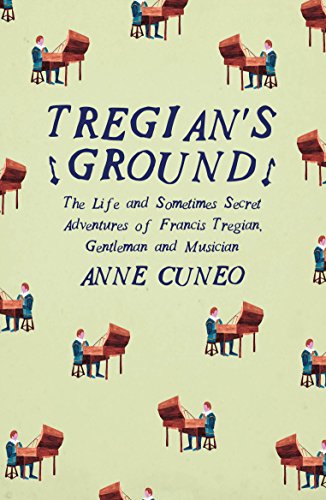Tregian’s Ground
In the musical lexicon, ‘Ground bass’ is the term used in Baroque music where a bass part is repeated throughout the piece although the ‘tune’ can vary considerably. This is a perfect title for this ‘autobiographical’ novel. I call it that because although the basic facts of this man’s life are known to musicologists, the details, whilst well-researched, are speculative.
Francis Tregian was a Roman Catholic, Cornish gentleman, when religious observance was in a state of flux. Protestantism in England was on the rise but precarious. He was a talented musician who compiled the prestigious Fitzwilliam Virginal Book, which is vital to our understanding of the great composers of the period. Cuneo has researched his life in painstaking detail. (Her afterword ‘Looking for Francis Tregian’ is well worth reading.)
This account tells of Tregian’s extensive journeys in England, France, Italy and Flanders, as a musician, clerk, messenger, spy and soldier. He was acquainted with William Shakespeare, Monteverdi and William Byrd and was highly regarded by both Elizabeth I and Henri IV, despite the difference in their religious observance. It would appear that everyone admired him, including Lord Burghley.
Most autobiographies are self-serving, but Tregian comes over as too good to be true. He was excellent in warfare, adept in Latin and most European languages, a brilliant musician but not a composer. He played the virginals beautifully, and could even make them.
This is a very long book. However, although it is a slow, and, at times, laborious read, it is a fascinating account of a turbulent life and well worth reading. I enjoyed it.










